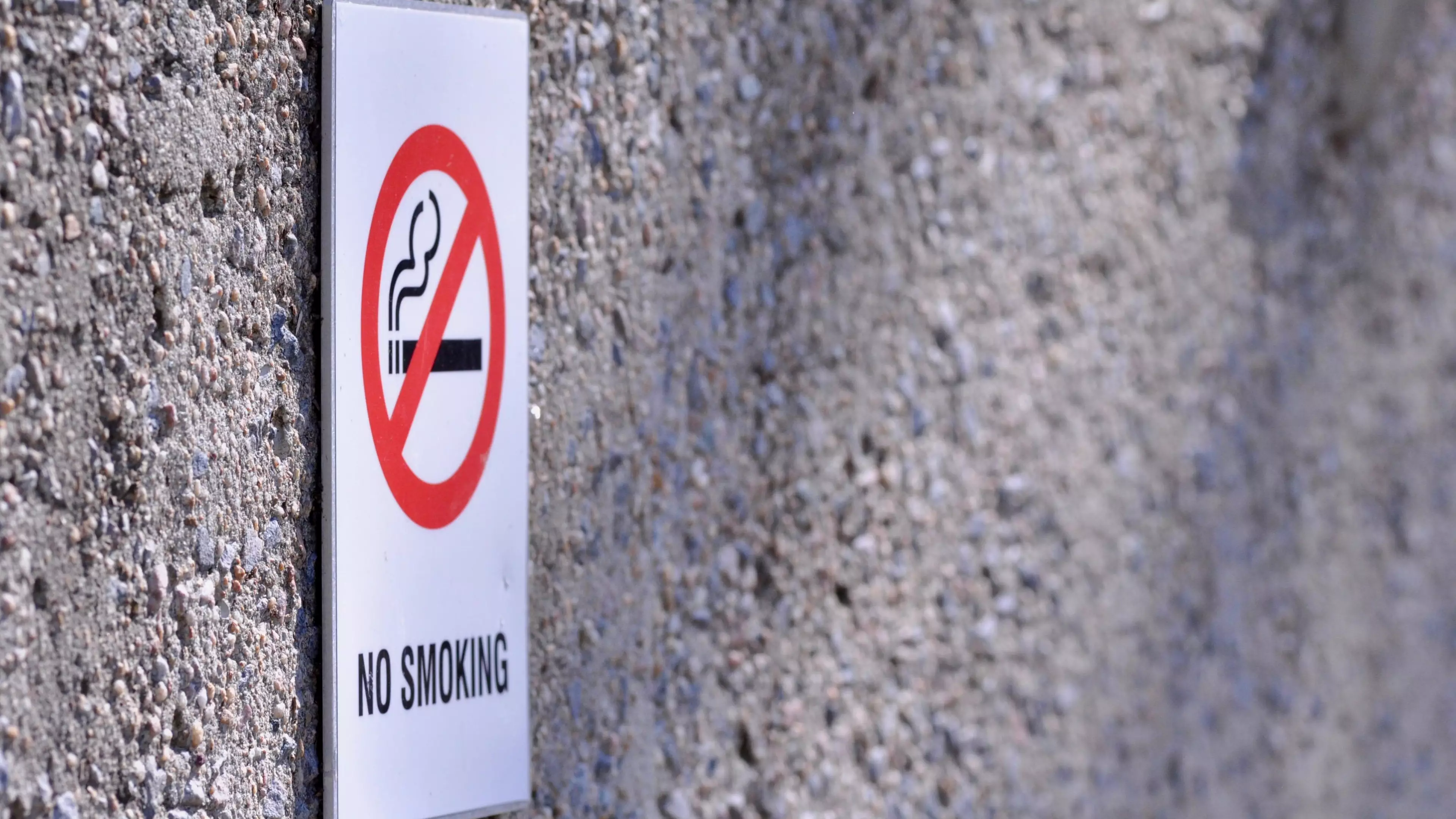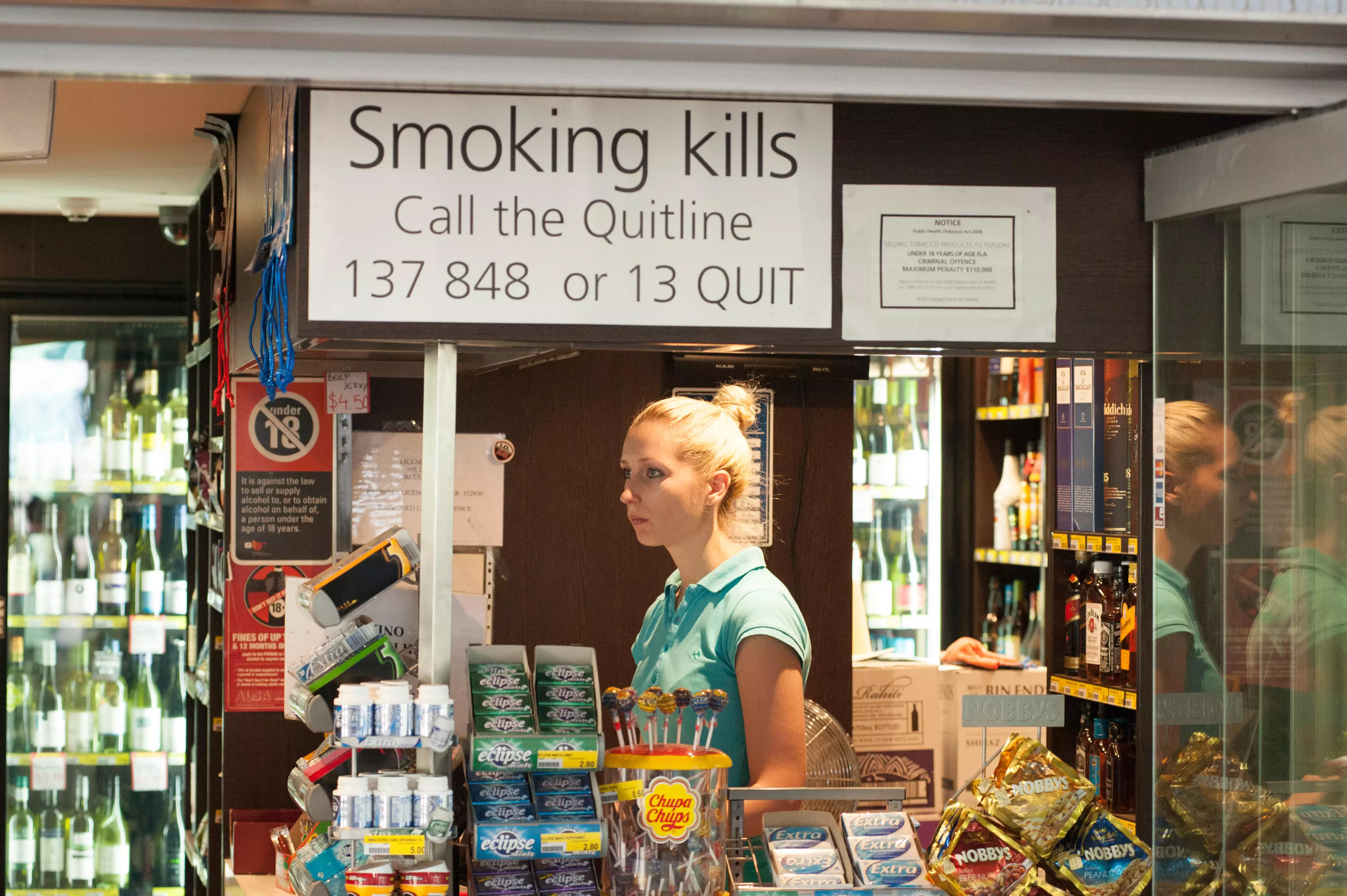
Leading public health researchers say Australian governments need to start planning for the phasing out of retail cigarette sales.
Several plans have been proposed for the removal of tobacco sales, including phasing out products by 2030 or ending tobacco sales to anyone born after the year 2000.
According to a piece published in the Medical Journal of Australia (MJA) by associate professor Coral Gartner, an international expert in tobacco control policy with the University of Queensland, several markets have already moved to reduce tobacco supply.
Advert
They have likened the decision to the removable of 'unsafe products such as contaminated food, asbestos, and lead paint from the market'.

The Netherlands has legislated for supermarkets to stop selling cigarettes from 2024, Balanga City Council in the Philippines passed an ordinance to end tobacco sales in 2016 and Beverley Hills City Council and Manhattan Beach City Council in the US ended tobacco sales at the start of this year.
New Zealand has also recently proposed a significant reduction in the number of tobacco retailers.
Advert
According to data published in the MJA earlier this year, 52.8 per cent of Victorians are in support of the phasing out of tobacco products and 64.2 per cent thought it was fair to remove them over the next 10 years.
Associate professor Gartner and her colleagues believe it's time for Australian governments to refocus their efforts from demand‐side measures, like updated packaging and advertising restrictions, to supply‐side measures that will restrict the selling of tobacco products.
The core focus for the push to remove cigarettes is that they don't meet modern consumer product safety standards and the phasing out of cigarette sales is widely supported by the public, including a substantial number of smokers.

If the industry can agree on a timeframe to phase out retail sales of ciggies, Gartner and her colleagues believe argue retail businesses will have time to create new business models that don't rely on these sales.
Advert
But that will also require state and territory governments 'reduce their reliance on tobacco excise tax as a general revenue source'.
According to data from the Cancer Council, tobacco smoking remains the leading preventable cause of death and disease in Australia, claiming the lives of around 24,000 Australians every year.
There are several options Australia can take for a phase-out.
Local governments took control of the process in the US, while New Zealand used a nationally-led initiative. But Gartner and her colleagues argue the handling of Covid-19 at a national level could be used as a roadmap for national tobacco regulations.
Advert
While the US has previously led the way with a tight 12-18 month timeline for the eradication of cigarettes, experts believe Australia could benefit from a long-term plan with a clear deadline for consumers and retailers.
"Demand reduction measures have dominated the tobacco control policy; although important, we suggest that the time to focus on supply reduction and to plan an end date for tobacco retailing is long overdue," said Gartner and colleagues in the MJA piece.
"Neither industry self‐regulation nor other voluntary approaches will substantially or expeditiously reduce tobacco retailing in support of the government's goal of reducing smoking to below 5% by 2030."
Featured Image Credit: P&F Photography / Alamy Stock PhotoTopics: News, Cigarettes, Australia